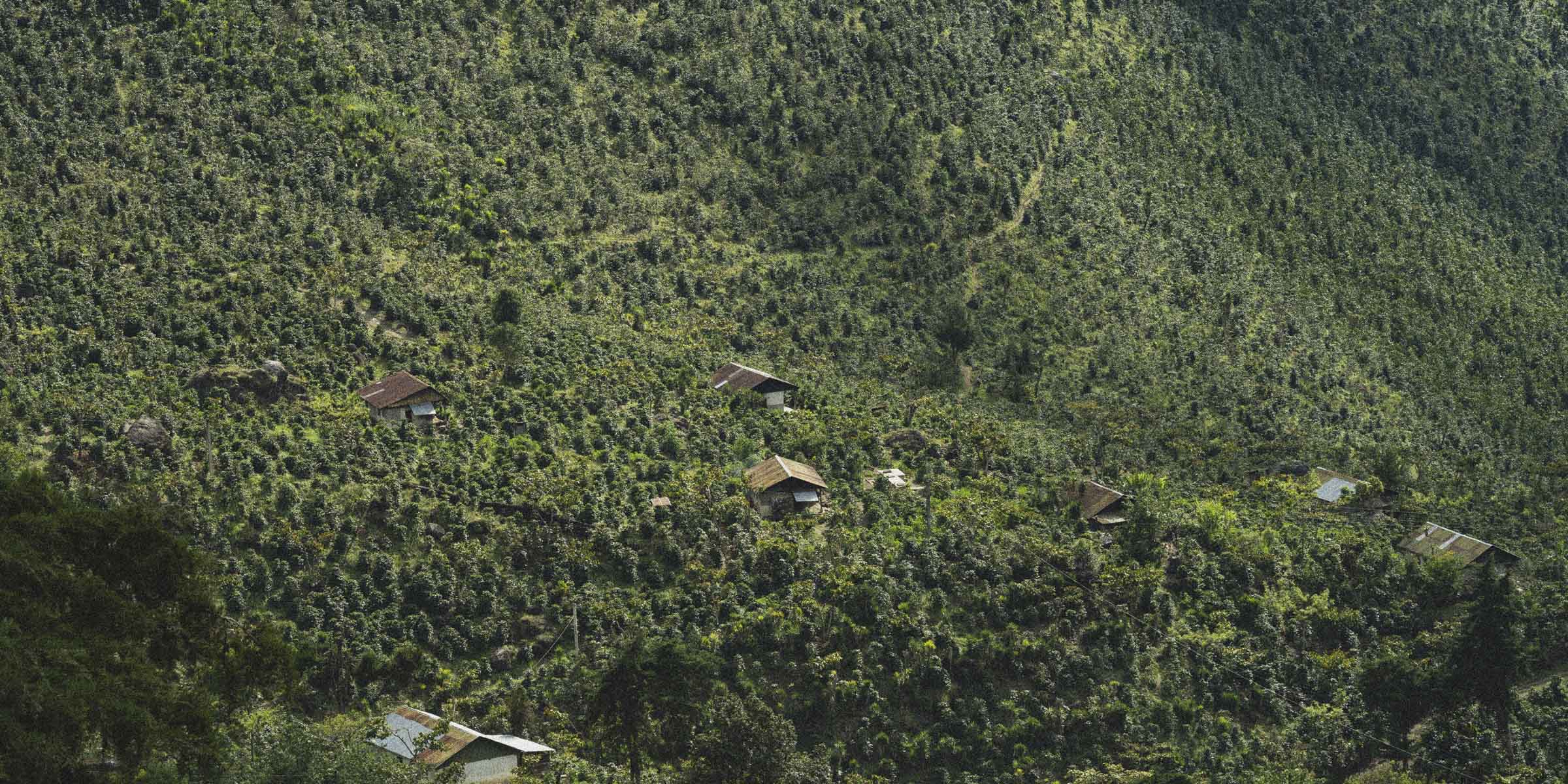Coffee was first grown in Ecuador (eh•kwuh•dor) back in 1860. Farmers established plantations in coastal areas to produce instant coffee. Coffee grown in this area today is still used for instant coffee because of the high demand locally in Ecuador, but the coffee industry is changing. As the coffee industry changes, large coastal plantations are no longer as popular. With the increasing demand for specialty coffee grown in higher elevations, smaller farms in more mountainous regions have become more popular.
Ecuador’s Untapped Potential
Coffee production has been a struggle for many farmers in Ecuador. Even in the early 1920s, when the country's cacao market was threatened because of disease, coffee was still an afterthought. During the 1990s and 2000s, a pricing crisis led to many farmers leaving Ecuador to find a better life elsewhere. As a result, they left their family-owned farms abandoned and neglected. During the pricing crisis, transportation, water, and power were so expensive; it was challenging for farmers to cultivate their land. Even though the elevation in Ecuador is perfect for growing coffee, catching momentum and capitalizing on what could be a thriving industry has been a slow process.
Ecuador’s unique climate provides different benefits and challenges. Since it is right on the equator, farms can harvest more often than other regions, requiring more worker availability. The shortage of workers creates difficulty cultivating land as often as possible, preventing farmers from reaching the right balance between growing and harvesting.
Regions that are now growing coffee range from the Intag Valley high up in the Andes Mountains to a couple of hours outside of the capital city of Quito near the ruins of the ancient Yumbo people. Farmers continue to grow in coastal regions, where mostly Robusta beans are grown, and coffee can even grow in the Galapagos Islands.
In recent years, entrance into the specialty market has created greater demand for Ecuadorian coffee. As demand grows, coffee farms can increase and become a vibrant industry. Ecuador has a lot of potential to really dive into the specialty coffee industry more, and we are excited to see them do so.



















